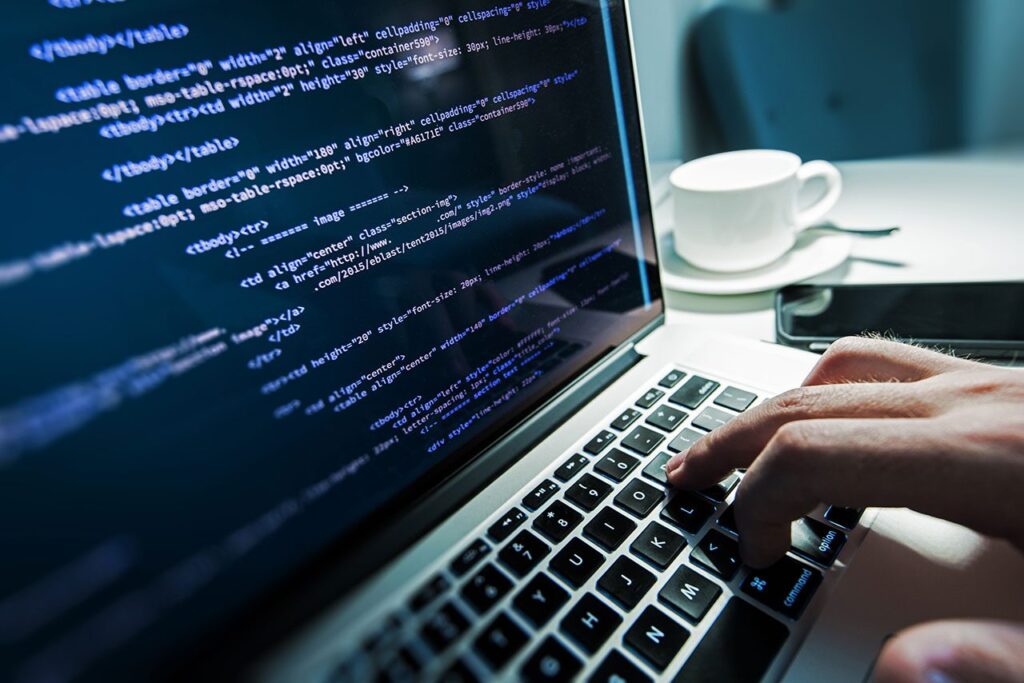Learning to code opens doors to countless opportunities in today’s digital age. With technology advancing at an incredible pace, the demand for skilled programmers has never been higher. But diving into computer programming can feel overwhelming, especially if you’re just starting out. Here, we’ve compiled 10 essential programming lessons designed to help beginners build a solid foundation, learn key skills, and start their journey with confidence.

1. Start with the Basics of Computer Programming
Before jumping into complex projects, it’s essential to understand the basics of computer programming. Familiarize yourself with what programming is and why it’s valuable. Learning terms like variables, data types, operators, and syntax provides a fundamental framework that will make the rest of your coding journey much smoother.
For beginners, languages like Python and JavaScript are ideal starting points as they have straightforward syntax and wide application, from front-end development to back-end development.
2. Understand How to Use Variables and Data Types
Variables are the building blocks of programming, storing data that can be referenced and manipulated. Data types, on the other hand, define the kind of data a variable can hold, such as integers, strings, or booleans. Most programming lessons will cover these concepts early on, as they are fundamental to writing efficient and functional code.
Using variables and understanding data types help you organize and manage data, an essential skill for creating scalable and reliable programs.
3. Learn to Debug and Troubleshoot Code
Even experienced programmers encounter errors in their code. Learning to debug and troubleshoot early on will help you identify and correct issues more efficiently, making you a more resilient coder. Debugging tools are available in most online coding tutorials and integrated development environments (IDEs), allowing you to set breakpoints and inspect variables.
Practicing coding exercises focused on debugging helps solidify these skills. As you work through errors and learn to understand what went wrong, your problem-solving skills will improve dramatically.
4. Get Comfortable with Control Structures
Control structures like loops and conditionals are essential tools in programming, allowing you to create dynamic and flexible code. Loops help you repeat actions without duplicating code, and conditionals let you define actions based on specific conditions. These structures are integral to developing efficient code and are a common part of any coding education.
Mastering control structures makes it easier to tackle larger programming projects later on. Platforms like freeCodeCamp and Codecademy offer coding workshops focused on these concepts, providing real-world examples to improve your understanding.
5. Introduction to Functions and Modular Code
Functions allow you to bundle code into reusable blocks, making your programs cleaner and more efficient. When you define a function, you create a self-contained piece of code that can be used whenever necessary, saving you from rewriting similar code multiple times. Modular code not only improves readability but also makes troubleshooting easier.
Creating functions is particularly useful in full-stack development, where code complexity grows quickly. Understanding functions is a critical step in advancing from beginner projects to more sophisticated software engineering tasks.
6. Data Structures and Their Importance
Data structures, such as arrays, lists, and dictionaries, are essential tools for organizing and storing data in a program. As you progress, you’ll encounter more complex data structures like trees and graphs, which are essential in algorithms courses. For now, focus on learning the basics and understanding how to implement them in your code.
Mastering data structures is important for handling large datasets, making it a valuable skill in fields like software engineering and data science. Sites like Coursera and edX offer beginner-friendly data structures courses as part of their programming curriculum.
7. Practice with Small Coding Projects
Once you’ve learned the basics, applying your knowledge through small coding projects is the best way to solidify your skills. Projects like a to-do list app, a simple calculator, or even a basic blog provide hands-on experience with real-world coding challenges. Many online coding tutorials include guided projects, helping beginners gain confidence in their abilities.
Projects also serve as an excellent addition to your portfolio, showcasing your ability to solve problems and apply programming concepts.
8. Get Familiar with Algorithms and Problem-Solving
Algorithms are the heart of programming, instructing a program on how to accomplish specific tasks. For beginners, learning sorting and searching algorithms is a good starting point. Understanding algorithms also prepares you for coding challenges and technical interviews.
Platforms like LeetCode and HackerRank offer beginner-friendly coding exercises to improve algorithmic thinking. Practicing algorithms also boosts your problem-solving skills, essential for any successful programmer.
9. Explore the Basics of Front-End and Back-End Development
To become a versatile developer, it’s helpful to understand the differences between front-end development and back-end development. Front-end development deals with the visual aspects of a website, focusing on user experience and interactivity. Back-end development involves server-side programming and data management.
For those interested in building complete applications, full-stack development combines both front-end and back-end skills. This approach allows you to create end-to-end solutions and makes you a highly valuable asset in the job market.
10. Embrace Continuous Learning and Coding Challenges
Programming is a constantly evolving field, so it’s essential to adopt a mindset of continuous learning. Regularly tackling coding challenges will help reinforce your skills and expose you to new concepts. Websites like Codewars, CodinGame, and HackerRank offer challenges that range from beginner to advanced levels, making them perfect for skill-building at any stage of your journey.
Participating in coding workshops or even taking an algorithms course can also keep you updated on industry best practices and improve your coding proficiency.

Start Building Your Coding Foundation Today
Mastering programming takes time, but by focusing on these essential lessons, beginners can build a strong foundation and gain confidence in their abilities. From understanding the basics of computer programming and data structures to exploring front-end and back-end development, each of these lessons contributes to your growth as a coder.
Whether you’re aiming for a career in software engineering or simply want to enhance your problem-solving skills, these foundational programming lessons will set you on the right path. The best way to improve is through practice, so get started with online coding tutorials and challenge yourself with new coding projects. With dedication and consistent learning, you’ll be well-equipped to tackle even the most complex coding problems and advance your coding career.




